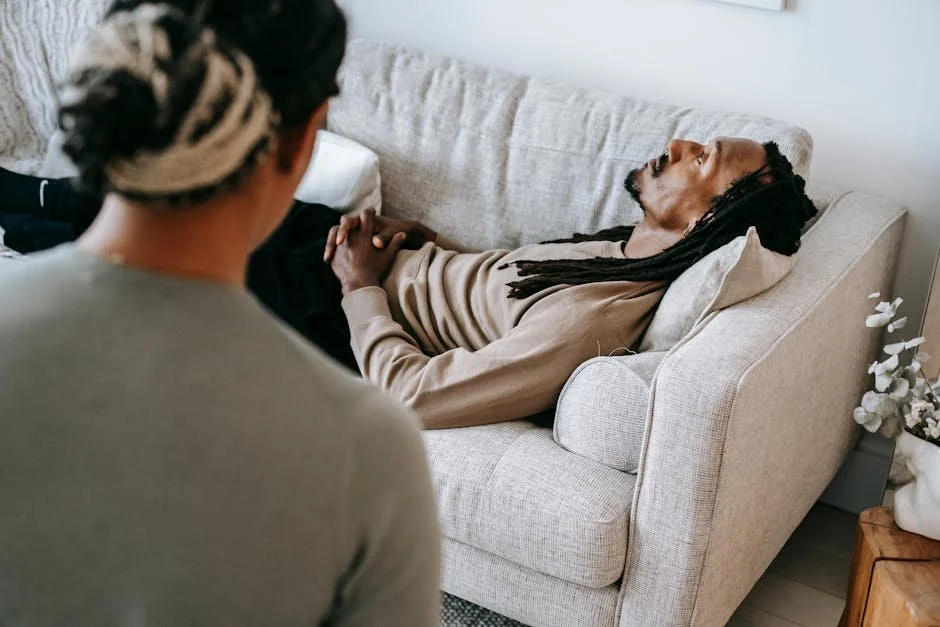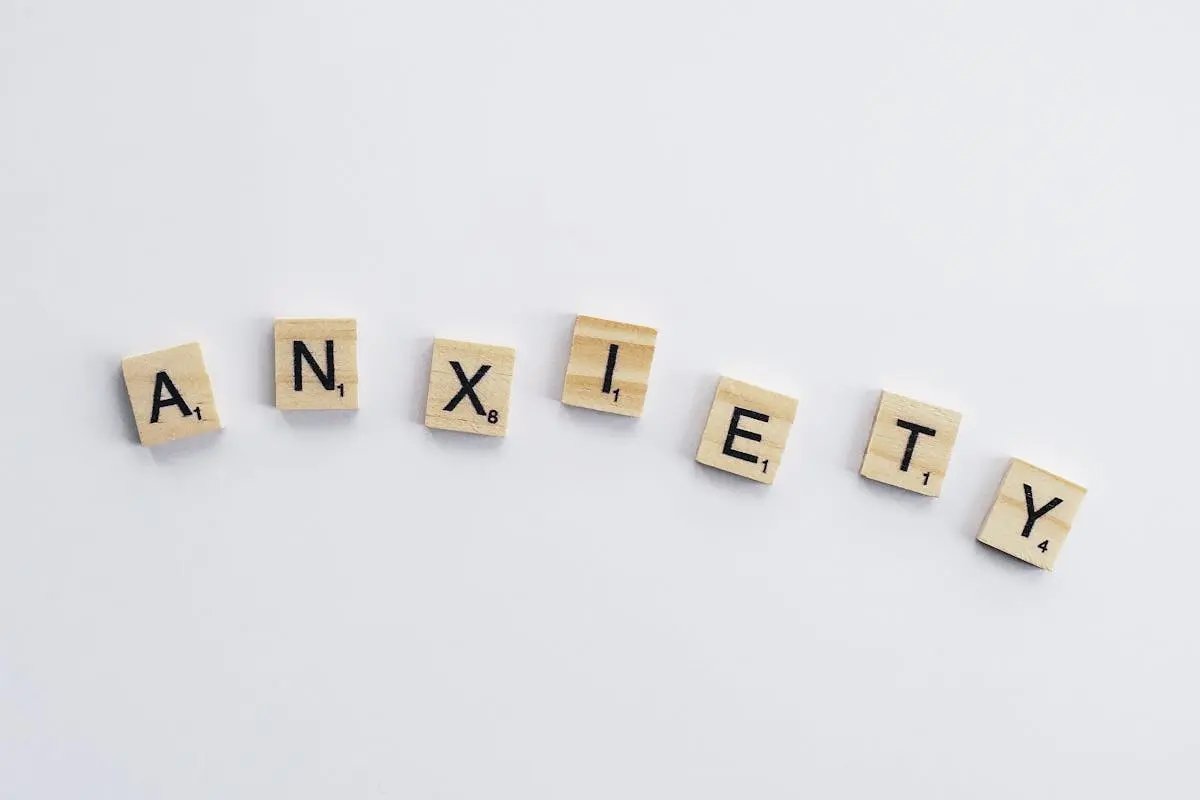Why Internet-Based Counseling Could Be Your Next Step Towards Mental Wellness
Understanding the Rise of Internet-Based Counseling
In today's fast-paced digital world, the rise of Internet-based counseling has been nothing short of revolutionary. People are now able to access mental health support and therapy from the comfort of their own homes or wherever they may be. This accessibility has broken down barriers that once prevented individuals from seeking the help they need. The convenience and ease of connecting with a counselor online have made therapy more approachable for many.
With the advancement of technology, the field of mental health counseling has adapted to meet the changing needs of society. Internet-based counseling provides a safe space for individuals to explore their thoughts and emotions without the fear of judgment. The anonymity it offers can be a comforting factor for those who may feel hesitant about traditional in-person therapy. By leveraging secure online platforms, counselors can now reach a wider audience and provide support to those who would otherwise not have access to such services.
One of the key drivers behind the increasing popularity of Internet-based counseling is the flexibility it offers. Scheduling sessions becomes much more convenient when all you need is a stable internet connection and a device to connect with your counselor. This flexibility is particularly beneficial for individuals with busy schedules or those living in remote areas where in-person therapy options may be limited.
As we navigate a world that is becoming increasingly interconnected through technology, the idea of seeking counseling online is becoming more normalized. The stigma once associated with mental health support is slowly fading away as people realize the value and importance of prioritizing their mental well-being. Internet-based counseling is not just a trend; it is a significant step forward in making mental health care more accessible and inclusive.
The Benefits of Accessing Therapy Online
Accessing therapy online comes with a multitude of benefits that can greatly impact one's mental well-being. One of the most significant advantages is the convenience it offers. Gone are the days of long commutes to a therapist's office; now, support is just a few clicks away. This convenience can be a game-changer for individuals juggling busy schedules or dealing with mobility issues.
Furthermore, online therapy provides a level of comfort that traditional face-to-face sessions may not always offer. Being in a familiar environment during sessions can help individuals feel more relaxed and open to sharing their thoughts and feelings. This comfort can lead to more productive and meaningful therapeutic experiences, ultimately contributing to better mental health outcomes.
Another key benefit of online therapy is the increased access to a diverse range of therapists and counseling approaches. Through internet-based platforms, individuals have the opportunity to connect with professionals from different geographical locations, backgrounds, and specialties. This diversity allows clients to find a counselor who aligns with their unique needs and preferences, enhancing the overall effectiveness of the therapeutic process.
In addition to convenience and comfort, online therapy can also be a more cost-effective option for those seeking mental health support. Without the need to factor in transportation costs or time off work for appointments, individuals can potentially save money by opting for virtual counseling sessions. This financial flexibility can make therapy more sustainable and accessible for a broader range of people.
Exploring the Effectiveness of Virtual Counseling Sessions
The effectiveness of virtual counseling sessions has been a topic of interest within the mental health community. Research has shown that online therapy can be just as beneficial as traditional in-person counseling for many individuals. Factors such as therapist-client rapport, treatment approaches, and the therapeutic alliance play crucial roles in determining the success of virtual counseling.
In a virtual setting, therapists can still employ evidence-based techniques to help clients navigate their mental health challenges. The use of video calls, messaging, and other digital tools can facilitate effective communication and intervention strategies. By adapting traditional therapeutic methods to an online format, counselors can maintain the quality of care they provide while catering to the evolving needs of their clients.
Additionally, virtual counseling sessions offer a level of flexibility that can enhance the overall therapeutic experience. Clients have the freedom to engage with therapy in a way that feels most comfortable to them, whether it be through live video sessions, messaging, or a combination of both. This flexibility can empower individuals to take an active role in their mental health journey, leading to more personalized and effective outcomes.
While there may be initial concerns about the efficacy of virtual counseling, ongoing research and positive client testimonials continue to demonstrate its value. As technology continues to advance and online therapy becomes more widespread, it is essential to recognize the potential of virtual counseling sessions in promoting mental wellness and resilience across diverse populations.
Overcoming Barriers Through Online Therapy Platforms
Online therapy platforms have been instrumental in breaking down barriers that once hindered individuals from seeking mental health support. Among the significant barriers addressed by these platforms is the issue of accessibility. People in remote areas or with limited mobility now have the opportunity to connect with qualified counselors without the need to travel long distances.
Moreover, online therapy platforms offer a layer of convenience and discretion that may not always be present in traditional therapy settings. The ability to schedule sessions at a time that suits one's lifestyle and to engage with therapy from the privacy of a personal space can empower individuals to take control of their mental health journey without added stress or discomfort.
For individuals with social anxiety or those uncomfortable with face-to-face interactions, online therapy platforms provide a safe and non-intimidating space to receive support. The digital nature of these platforms allows clients to express themselves more freely and openly, fostering a sense of trust and comfort in the therapeutic relationship. This environment can be particularly beneficial for those who may struggle in traditional counseling settings.
By offering a range of communication options, such as video calls, messaging, and phone sessions, online therapy platforms cater to diverse communication preferences. Clients can choose the mode of interaction that best aligns with their comfort level and therapeutic goals, creating a more personalized and effective counseling experience. This adaptability is key to overcoming barriers and ensuring that mental health support is accessible to all who need it.
Privacy and Security in Internet-Based Counseling
Privacy and security are paramount when it comes to internet-based counseling. Clients must feel confident that their personal information and therapy sessions are protected from unauthorized access. Reputable online therapy platforms employ robust security measures, such as encryption protocols and secure data storage, to safeguard client confidentiality and privacy.
In addition to technological safeguards, therapists practicing online are bound by the same ethical and legal standards as those in traditional settings. Confidentiality, informed consent, and professional boundaries remain essential aspects of the therapeutic relationship, regardless of whether sessions are conducted in person or online. By upholding these standards, counselors ensure that clients feel safe and respected throughout the counseling process.
Clients engaging in internet-based counseling should also take steps to protect their own privacy, such as using secure internet connections and private devices for therapy sessions. Open communication with their therapist about any concerns regarding privacy can help establish trust and clarity on how personal information is managed. By prioritizing privacy and security, both clients and therapists contribute to a safe and supportive online counseling environment.
Ultimately, maintaining confidentiality and data security in internet-based counseling is a shared responsibility between the platform, the therapist, and the client. By working together to enforce best practices and ethical guidelines, the online therapy community can uphold the integrity of mental health care and ensure that individuals feel comfortable seeking support through digital channels.
Choosing the Right Online Counselor for Your Needs
Selecting the right online counselor is a crucial step in your mental health journey. With a vast array of therapist profiles and specialties available online, it's essential to consider your specific needs and preferences when making this decision. Factors such as therapeutic approach, experience, and areas of expertise should guide your search for the ideal counselor.
Before committing to online therapy with a particular counselor, take the time to research their background and qualifications. Look for reviews or testimonials from previous clients to gauge their effectiveness and professionalism. A good fit between you and your counselor can significantly impact the success of your therapy sessions and your overall well-being.
Transparency is key when it comes to online counseling, so don't hesitate to ask potential therapists about their approach to confidentiality, session structure, and communication methods. A reputable counselor will be open to discussing these aspects to ensure that you feel comfortable and informed before beginning your therapeutic journey together.
Remember that finding the right online counselor may require some trial and error, and that's okay. Don't be discouraged if the first therapist you connect with doesn't feel like the right fit. Keep exploring your options until you find a counselor who resonates with you and supports your mental health goals. The journey to finding the right counselor is a personal one, and investing time and effort in this process can lead to transformative and meaningful therapeutic experiences.
Navigating PTSD with Digital Psychotherapy: What You Need to Know
In the realm of mental health, finding effective ways to navigate PTSD can be a challenging journey. Digital psychotherapy has emerged as a valuable tool in providing support and treatment for individuals experiencing post-traumatic stress disorder. Through the use of technology and online platforms, therapy becomes more accessible, convenient, and tailored to the individual's needs. Join us as we delve into the world of digital psychotherapy and explore its benefits in helping individuals cope with PTSD.
Understanding PTSD and the Role of Psychotherapy
Post-Traumatic Stress Disorder (PTSD) is a mental health condition that develops in response to a traumatic event such as combat, natural disasters, accidents, or assault. Individuals with PTSD may experience symptoms like flashbacks, nightmares, severe anxiety, and uncontrollable thoughts about the event. Psychotherapy, also known as talk therapy, is a common and effective treatment for PTSD. It helps individuals understand their thoughts and feelings, develop coping strategies, and process traumatic experiences in a safe environment.
In traditional psychotherapy, individuals attend face-to-face sessions with a therapist or counselor. However, the advent of digital psychotherapy has transformed the landscape of mental health care. With digital platforms, individuals can now access therapy remotely through video calls, messaging, and online resources. This shift towards online therapy offers new possibilities for treating PTSD and reaching individuals who may face barriers to in-person care.
Moreover, digital psychotherapy provides a sense of anonymity and privacy that can be particularly beneficial for those hesitant to seek traditional therapy. The flexibility of scheduling online sessions, the comfort of receiving treatment from home, and the ability to choose from a diverse range of therapists all contribute to making digital psychotherapy a compelling option for individuals navigating PTSD.
One of the key advantages of digital psychotherapy is its ability to transcend geographic boundaries, allowing individuals in remote areas or with mobility limitations to access quality mental health care. By harnessing the power of technology, individuals with PTSD can receive timely support, connect with specialized therapists, and engage in evidence-based treatment modalities tailored to their unique needs.
The Evolution of Psychotherapy in the Digital Age
The digital age has ushered in a new era of mental health care, expanding the reach and impact of psychotherapy through innovative digital solutions. Digital psychotherapy platforms leverage secure communication channels, encrypted data storage, and user-friendly interfaces to create a safe and therapeutic space for individuals seeking mental health support.
With the integration of multimedia elements such as videos, interactive exercises, and self-assessment tools, digital psychotherapy offers a dynamic and engaging therapeutic experience. These innovative features not only enhance the effectiveness of therapy but also empower individuals to take an active role in their mental health journey.
Additionally, the availability of 24/7 crisis intervention services and real-time chat support ensures that individuals with PTSD have access to immediate help when needed. The seamless connectivity of digital platforms enables continuous monitoring, feedback, and progress tracking, promoting a more personalized and responsive approach to mental health care.
As technology continues to advance, digital psychotherapy is poised to revolutionize the way we approach PTSD treatment. The integration of artificial intelligence, virtual reality, and machine learning algorithms holds promise for enhancing therapeutic outcomes, predicting treatment responses, and optimizing the delivery of care for individuals with PTSD.
By embracing the potential of digital innovations, the field of psychotherapy is undergoing a profound transformation towards a more accessible, efficient, and client-centered model of care. The evolution of digital psychotherapy not only expands treatment options for individuals with PTSD but also paves the way for a future where mental health support is seamlessly integrated into everyday life.
Exploring the Benefits of Digital Psychotherapy Platforms
Digital psychotherapy platforms offer a range of benefits that address the diverse needs of individuals seeking mental health support, particularly those navigating PTSD. The convenience of accessing therapy from any location with internet connectivity eliminates barriers related to transportation, mobility, and scheduling conflicts, making it easier for individuals to prioritize their mental well-being.
Moreover, the affordability of digital therapy services often makes mental health care more accessible and cost-effective for individuals, reducing financial obstacles that may prevent individuals from seeking treatment for PTSD. Many digital psychotherapy platforms also offer sliding scale fees, discounts, or free resources to ensure that mental health support is available to all individuals regardless of their financial situation.
Digital psychotherapy platforms prioritize user privacy and data security, implementing stringent measures to protect sensitive information and maintain confidentiality. Encryption protocols, stringent privacy policies, and secure payment gateways ensure that individuals can engage in therapy sessions with the assurance of their personal information being safeguarded and their confidentiality respected.
Furthermore, digital psychotherapy platforms empower individuals with PTSD to take an active role in their treatment by providing access to digital resources, self-help tools, and educational materials. These platforms foster a sense of autonomy, agency, and self-empowerment, allowing individuals to engage in therapy at their own pace, track their progress, and develop coping skills that promote resilience and recovery.
By embracing the benefits of digital psychotherapy platforms, individuals with PTSD can embark on a transformative journey towards healing and growth. The integration of technology into mental health care not only enhances the accessibility and effectiveness of therapy but also creates a supportive and inclusive environment where individuals feel empowered to seek help, connect with others, and embark on a path towards mental well-being.
Embracing the Future of Mental Health Care
As we conclude our exploration of digital psychotherapy's role in navigating PTSD, it becomes evident that technology has the power to revolutionize mental health treatment. The convenience, accessibility, and personalized nature of digital psychotherapy make it a promising avenue for individuals seeking support for PTSD. By harnessing the capabilities of digital platforms, we can contribute to a future where mental health services are more inclusive and widely available to those in need.
5 Tips for Choosing the Right Anxiety Treatment Online: What to Look For
Understanding Your Anxiety and Treatment Options
Anxiety treatment online has emerged as a convenient and effective option for those seeking help with their mental health. Understanding your anxiety is the first step in finding the right treatment. It's crucial to recognize your symptoms and how they manifest in your daily life. Are you struggling with constant worrying, panic attacks, or social anxiety? Identifying the specific challenges you face can guide you towards the most suitable online therapy.
Exploring various treatment options online allows you to tailor your approach to managing anxiety. Cognitive-behavioral therapy (CBT), mindfulness techniques, and medication management are among the common strategies offered in virtual therapy. By learning about these options, you can make an informed decision about the type of treatment that aligns with your preferences and needs.
It's essential to keep in mind that each individual responds differently to anxiety treatment. What works for one person may not be as effective for another. Taking the time to research and understand the available therapies can empower you to choose the approach that resonates most with you. Remember, the goal is to find a treatment that not only addresses your anxiety symptoms but also supports your overall well-being.
Tip 1: Researching Credible Online Therapy Platforms
When diving into the realm of anxiety treatment online, the first tip is to research credible online therapy platforms. Look for reputable websites or apps that offer a range of therapy services provided by licensed professionals. Reading reviews from other users can give you insight into the platform's effectiveness and user satisfaction. Ensure the platform follows strict confidentiality guidelines to safeguard your privacy during therapy sessions.
Consider the ease of navigation and user-friendly interface of the online therapy platform. A well-designed platform can enhance your therapy experience and make it more engaging. Additionally, verify that the platform offers secure communication channels to protect your personal information. By choosing a trusted online therapy provider, you can embark on your anxiety treatment journey with confidence and peace of mind.
Furthermore, take the time to explore the different therapy options available on the platform. Whether you prefer individual therapy, group sessions, or specialized programs tailored to specific anxiety disorders, ensure that the platform offers the services that meet your unique needs. Researching and comparing multiple online therapy platforms can help you find the right fit for your anxiety treatment goals.
Tip 2: Evaluating the Qualifications of Online Therapists
One of the key factors to consider when seeking anxiety treatment online is the qualifications of the online therapists. Verify that the therapists on the platform are licensed, experienced, and specialized in treating anxiety disorders. A well-trained therapist can provide you with the guidance and support you need to navigate your anxiety treatment successfully.
Look for information about the therapists' backgrounds, credentials, and areas of expertise. Knowing that you are working with a qualified professional can increase your confidence in the therapy process. Additionally, consider the therapeutic approach used by the therapists and ensure it aligns with your preferences and therapeutic goals. Trusting your therapist's expertise is essential for creating a safe and effective therapeutic relationship.
Don't hesitate to ask questions or request more information about the therapists' qualifications before starting your online therapy sessions. Open communication and transparency regarding the therapists' expertise can help you build trust and forge a strong therapeutic alliance. By evaluating the qualifications of online therapists, you can feel confident in the quality of care you receive for your anxiety.
Tip 3: Considering the Convenience and Accessibility of Virtual Treatment
Convenience and accessibility are significant advantages of seeking anxiety treatment online. Virtual therapy allows you to attend sessions from the comfort of your home, eliminating the need for travel or waiting rooms. The flexibility of scheduling online therapy sessions enables you to prioritize your mental health without disrupting your daily routine or commitments.
Moreover, virtual treatment provides access to therapy services for individuals living in remote areas or those with limited mobility. The convenience of receiving therapy online can remove barriers to seeking help for anxiety and ensure that support is accessible to everyone. By considering the convenience and accessibility of virtual treatment, you can take the first step towards managing your anxiety effectively.
Another benefit of virtual therapy is the option to choose from a wider pool of therapists and treatment options. With online platforms offering a diverse range of therapists specializing in various modalities, you have the freedom to select a therapist who best suits your preferences and therapy goals. Embracing the convenience of virtual treatment can empower you to engage in therapy in a way that works best for you.
Tip 4: Understanding the Cost and Insurance Coverage of Online Anxiety Treatment
Before committing to anxiety treatment online, it's essential to understand the cost and insurance coverage associated with virtual therapy. Explore the pricing structure of the online therapy platform and determine whether they offer affordable payment plans or accept insurance. Knowing the financial aspects of online therapy can help you plan for the expenses involved in your anxiety treatment.
Contact your insurance provider to inquire about coverage for online mental health services. Some insurance plans may partially or fully cover virtual therapy sessions, reducing your out-of-pocket expenses. Understanding your insurance benefits and any limitations related to online therapy can assist you in making informed decisions about your treatment options and budgeting for therapy costs.
In addition to insurance coverage, consider the value you place on investing in your mental health through online therapy. While costs are an important factor to consider, prioritizing your well-being and accessing quality anxiety treatment online can have long-term benefits for your mental and emotional health. By understanding the cost implications and insurance coverage of online therapy, you can approach your anxiety treatment journey with financial clarity and peace of mind.
Tip 5: Reading Reviews and Seeking Recommendations for Online Anxiety Treatments
Reading reviews and seeking recommendations from trusted sources can help you navigate the vast landscape of online anxiety treatments. Look for testimonials from individuals who have undergone online therapy for anxiety and pay attention to their experiences and outcomes. Positive reviews can indicate the effectiveness and credibility of a particular online therapy platform.
Reach out to friends, family members, or mental health professionals for recommendations on reputable online therapy services. Personal referrals can provide valuable insights into the quality of care, therapist-client relationships, and overall satisfaction with the online treatment process. By gathering feedback and recommendations, you can make an informed decision about the most suitable online anxiety treatment for your needs.
Furthermore, take the time to research the success rates and reviews of online therapy platforms to gauge their reputation in the mental health community. Platforms with a track record of positive outcomes and client satisfaction are likely to offer effective and reliable anxiety treatment options. Reading reviews and seeking recommendations can guide you towards reputable online therapy services that prioritize your mental well-being.
The Benefits of Professional Anxiety Treatment in Coral Springs: Improving Quality of Life
Anxiety can be an overwhelming and debilitating condition, affecting millions of people worldwide. In Coral Springs, professional anxiety treatment offers a beacon of hope for those struggling to navigate the challenges of anxiety disorders. By seeking help from trained professionals, individuals can take the first step towards regaining control of their lives and achieving a sense of peace and well-being. Explore the transformative benefits of professional anxiety treatment in Coral Springs and discover how it can significantly improve your quality of life.
Understanding Anxiety Disorders
Anxiety disorders encompass a spectrum of conditions characterized by feelings of fear, worry, and unease that can be disruptive to daily life. From generalized anxiety disorder to panic disorder and phobias, these conditions can manifest in various forms, impacting both mental and physical well-being. Individuals with anxiety disorders may experience persistent stress, excessive worrying, physical symptoms like palpitations and sweating, and a heightened sense of danger even in non-threatening situations.
The complexity of anxiety disorders lies in their ability to interfere with relationships, work performance, and overall quality of life. Understanding the nuances of anxiety disorders involves recognizing the triggers, symptoms, and behavioral patterns that contribute to the cycle of anxiety. By shedding light on these aspects, individuals can begin to grasp the profound impact anxiety can have on their daily experiences and emotional state.
Moreover, anxiety disorders are multifaceted, often co-occurring with other mental health conditions such as depression or obsessive-compulsive disorder. This interconnectedness underscores the importance of comprehensive assessment and tailored treatment strategies to address the unique needs of individuals with anxiety disorders. Seeking professional guidance in Coral Springs can provide clarity and direction in navigating the complexities of anxiety and setting forth on a path towards healing.
In Coral Springs, dedicated professionals equipped with specialized training and expertise offer a compassionate understanding of anxiety disorders. By delving into the intricacies of each individual's experience, these professionals create a supportive environment where individuals feel heard, validated, and empowered to confront their anxiety with resilience and courage.
Through increased awareness and education, individuals can gain insights into the underlying mechanisms of anxiety disorders and the available treatment modalities that can pave the way for recovery. By demystifying anxiety and fostering a sense of community and understanding, professional anxiety treatment in Coral Springs aims to dismantle stigmas and promote open dialogue surrounding mental health struggles.
The Impact of Untreated Anxiety
The repercussions of untreated anxiety can permeate every aspect of an individual's life, leading to profound disruptions in personal relationships, work productivity, and emotional well-being. When anxiety is left unaddressed, it can escalate and intensify, exacerbating symptoms and triggering debilitating episodes of panic or distress. The relentless grip of anxiety can instill feelings of isolation, hopelessness, and overwhelming despair, making it challenging for individuals to envision a brighter tomorrow.
Moreover, untreated anxiety can contribute to a cycle of avoidance and maladaptive coping mechanisms, further reinforcing the grip of anxiety on one's life. As anxiety tightens its hold, individuals may find themselves withdrawing from social interactions, neglecting self-care, and struggling to engage in activities they once enjoyed. This downward spiral can perpetuate feelings of helplessness and entrapment, heightening the urgency of seeking professional intervention to break free from the clutches of anxiety.
The insidious nature of untreated anxiety lies in its insidious progression, gradually eroding one's sense of self and distorting perceptions of reality. Over time, unaddressed anxiety can lead to a deterioration in physical health, sleep disturbances, and impaired cognitive functioning, further complicating an individual's ability to cope with daily stressors and challenges. Recognizing the toll that untreated anxiety can take underscores the critical importance of seeking timely and effective professional treatment to prevent further escalation of symptoms.
Benefits of Seeking Professional Help
Embarking on the journey of professional anxiety treatment in Coral Springs opens up a realm of transformative benefits that extend far beyond symptom management. By enlisting the support of trained therapists and mental health professionals, individuals can embark on a personalized treatment journey tailored to their unique needs and goals. Through evidence-based interventions and therapeutic modalities, individuals can acquire coping skills, resilience, and self-awareness to navigate the challenges of anxiety with confidence and empowerment.
Professional help offers a safe space for individuals to explore their innermost thoughts, emotions, and fears in a non-judgmental and empathetic environment. The therapeutic alliance formed between individuals and their mental health providers fosters a sense of trust, collaboration, and mutual respect essential for the healing process. By engaging in introspective exploration and self-reflection, individuals can gain a deeper understanding of the root causes of their anxiety and develop strategies to foster emotional regulation and well-being.
Furthermore, professional anxiety treatment equips individuals with a toolbox of effective coping mechanisms and relaxation techniques to manage stress, mitigate anxiety symptoms, and enhance overall quality of life. From cognitive-behavioral therapy to mindfulness practices and holistic approaches, the array of therapeutic modalities available in Coral Springs offers individuals a diverse range of strategies to cultivate resilience, self-compassion, and adaptive coping skills in the face of anxiety triggers.
Seeking professional help is not a sign of weakness but a courageous choice to prioritize one's mental health and well-being. By taking proactive steps towards addressing anxiety through professional intervention, individuals empower themselves to reclaim agency over their lives, cultivate emotional resilience, and forge a path towards lasting recovery and personal growth. The journey towards healing begins with a single step, and seeking professional anxiety treatment in Coral Springs can be the transformative catalyst for positive change.
Therapeutic Approaches for Anxiety Relief
In the realm of anxiety relief, therapeutic approaches play a pivotal role in alleviating symptoms, fostering emotional well-being, and promoting long-term recovery. Coral Springs offers a spectrum of evidence-based therapies and interventions tailored to address the multifaceted nature of anxiety disorders and cater to the diverse needs of individuals seeking relief. From individual counseling and group therapy to exposure-based treatments and mindfulness practices, the therapeutic landscape in Coral Springs is rich with options for those navigating the complexities of anxiety.
Cognitive-behavioral therapy (CBT), a cornerstone in anxiety treatment, focuses on identifying and restructuring negative thought patterns and beliefs that fuel anxiety. By learning to challenge irrational fears and catastrophic thinking, individuals can reframe their perceptions, adopt healthier coping strategies, and build resilience in the face of anxiety triggers. CBT empowers individuals to develop practical skills for managing anxiety symptoms, enhancing self-efficacy, and cultivating a sense of mastery over their mental health.
Mindfulness-based interventions offer individuals a holistic approach to anxiety relief, integrating techniques such as meditation, deep breathing, and body scan exercises to promote present-moment awareness and emotional regulation. By cultivating mindfulness skills, individuals can learn to observe their thoughts and emotions without judgment, develop self-compassion, and enhance their capacity to cope with stress and anxiety triggers effectively. The practice of mindfulness serves as a powerful tool in grounding individuals in the present moment, fostering resilience, and reducing reactivity to anxiety-provoking stimuli.
Moreover, exposure therapy, a specialized technique in treating anxiety disorders, involves gradually exposing individuals to feared situations or stimuli in a safe and controlled manner. Through systematic desensitization and repeated exposure, individuals can confront their anxiety triggers, challenge avoidance behaviors, and rewire their brain's fear response. Exposure therapy empowers individuals to build tolerance to anxiety-provoking situations, reframe their perceptions of fear, and reclaim agency over their lives by confronting challenges head-on.
By combining a diverse array of therapeutic approaches, Coral Springs provides a comprehensive toolkit for individuals to navigate the complexities of anxiety and chart a course towards emotional healing and well-being. Whether through psychotherapy, relaxation techniques, or holistic practices, the therapeutic landscape in Coral Springs offers a supportive and empowering environment for individuals to embark on a transformative journey of self-discovery, resilience, and growth in the face of anxiety.
Improving Quality of Life Through Treatment
The essence of professional anxiety treatment lies in its capacity to enhance the quality of life for individuals grappling with the burdens of anxiety disorders. Within the serene landscapes of Coral Springs, individuals can embark on a journey of self-discovery, healing, and growth under the compassionate guidance of trained therapists and mental health professionals. By prioritizing their mental health and seeking therapeutic support, individuals can break free from the shackles of anxiety, cultivate emotional resilience, and embrace a life filled with purpose, joy, and fulfillment.
Professional anxiety treatment empowers individuals to rewrite their narratives, challenge limiting beliefs, and transform self-defeating thought patterns into narratives of empowerment and self-compassion. Through the therapeutic process, individuals can explore the root causes of their anxiety, develop effective coping strategies, and cultivate a deep sense of inner peace and well-being. The journey towards healing is a profound path of self-discovery and transformation, guiding individuals towards a future brimming with possibilities, growth, and emotional flourishing.
The ripple effects of professional anxiety treatment extend beyond symptom alleviation, transcending into every facet of an individual's life. By addressing anxiety at its core and fostering emotional healing, individuals can rebuild their relationships, reclaim their passions, and reignite their zest for life. The transformative power of professional treatment lies in its ability to unlock individuals' potential, restore their sense of agency and self-worth, and pave the way towards a future defined by resilience, purpose, and authentic self-expression.
In essence, professional anxiety treatment in Coral Springs serves as a beacon of hope and healing for individuals navigating the complexities of anxiety disorders. By embracing the therapeutic journey with courage, vulnerability, and openness, individuals can embark on a transformative path towards emotional well-being, self-empowerment, and holistic healing. Remember, the decision to seek professional help is a powerful step towards reclaiming control over your life, cultivating resilience, and unlocking a future brimming with possibility and positivity.
Embracing a Brighter Tomorrow
As anxiety continues to be a prevalent issue impacting individuals' daily lives, professional treatment remains a vital resource for those seeking relief and support. By addressing anxiety head-on through specialized care and therapeutic approaches, individuals can embark on a journey towards emotional healing and enhanced well-being. Remember, reaching out for professional help is a courageous step towards a brighter, more fulfilling future, free from the grips of anxiety.
The Benefits of Virtual Psychiatry in Today's Fast-Paced World
In a world where time is of the essence, virtual psychiatry emerges as a beacon of hope amidst the chaos. The convenience and accessibility it offers have revolutionized the way mental health support is provided, breaking down barriers and reaching individuals in need, anytime, anywhere.
The Rise of Virtual Psychiatry Services
Virtual psychiatry services have witnessed a meteoric rise, transforming the traditional landscape of mental health care. With the advent of telecommunication technologies, individuals can now connect with licensed mental health professionals virtually, breaking down geographical constraints and eliminating the need for in-person visits.
One of the key advantages of virtual psychiatry is its ability to provide timely interventions. Through online platforms and video conferencing, patients can access therapy sessions, consultations, and support groups promptly, without the hassle of long waiting periods or travel time. This instant access to care can be crucial during moments of crisis or when urgent mental health support is needed.
Moreover, virtual psychiatry promotes inclusivity by reaching marginalized populations who may have limited access to traditional mental health services. By offering a safe and confidential space for therapy from the comfort of one's home, virtual platforms reduce stigma and create a more diverse and accepting environment for seeking help.
The flexibility of virtual psychiatry also plays a significant role in accommodating individuals with busy schedules or mobility restrictions. By removing the barriers of travel and time constraints, virtual sessions empower more people to prioritize their mental well-being without compromising their work or personal responsibilities.
Overall, the rise of virtual psychiatry services signifies a pivotal shift towards a more accessible, convenient, and person-centered approach to mental health care. As technology continues to evolve, the possibilities for expanding virtual mental health support are limitless, offering a glimmer of hope for those in need of assistance.
Advantages of Accessible Mental Health Support
Accessible mental health support through virtual psychiatry transcends the confines of traditional brick-and-mortar settings, opening up a world of possibilities for individuals seeking assistance. By leveraging online platforms and telecommunication tools, mental health professionals can engage with clients in ways that cater to their unique needs and preferences.
One significant advantage of accessible mental health support is the removal of logistical barriers that often deter individuals from seeking help. Through virtual psychiatry, individuals in remote areas, those with physical disabilities, or those facing transportation challenges can connect with therapists and psychiatrists without leaving their homes.
Additionally, virtual psychiatry promotes continuous care and support by offering regular check-ins, monitoring, and follow-ups to ensure that individuals are progressing on their mental health journey. This ongoing engagement fosters a sense of continuity and accountability, empowering clients to stay committed to their wellness goals.
The personalized nature of accessible mental health support allows for tailored treatment plans that consider each individual's unique circumstances and preferences. Whether through video sessions, text-based therapy, or mobile apps, virtual psychiatry offers a range of modalities to suit diverse needs and comfort levels.
By breaking down geographical, financial, and social barriers, accessible mental health support via virtual platforms enables a more holistic and equitable approach to mental well-being. As society continues to recognize the importance of mental health care, the accessibility and flexibility of virtual psychiatry will play a pivotal role in meeting the evolving needs of individuals worldwide.
Enhancing Patient Engagement Through Teletherapy
Teletherapy, a key component of virtual psychiatry, revolutionizes patient engagement by offering a range of interactive and user-friendly tools to enhance the therapy experience. Through video sessions, messaging platforms, and online resources, teletherapy bridges the gap between patients and mental health professionals, fostering a sense of connection and support.
One of the primary advantages of teletherapy is its convenience and flexibility, allowing patients to engage in therapy from the comfort and privacy of their own homes. This accessibility reduces the barriers to seeking help and encourages individuals to prioritize their mental health without the constraints of traditional therapy settings.
Moreover, teletherapy promotes consistent and proactive engagement by providing patients with tools for self-monitoring, mood tracking, and goal setting between sessions. This active involvement in the therapeutic process empowers patients to take charge of their mental well-being and collaborate more effectively with their therapists.
The interactive nature of teletherapy sessions, which can include virtual exercises, worksheets, and real-time feedback, enhances patient engagement and encourages participation in treatment goals. This innovative approach to therapy not only promotes transparency and communication but also contributes to a more dynamic and personalized treatment experience.
By leveraging teletherapy to enhance patient engagement, virtual psychiatry sets a new standard for interactive and client-centered mental health care. As technology continues to advance, teletherapy will play a vital role in fostering meaningful connections, improving treatment outcomes, and empowering individuals to take control of their mental health journey.
Effectiveness of Online Psychological Assessments
Online psychological assessments have become integral tools in virtual psychiatry, offering efficient and evidence-based methods for evaluating mental health concerns and treatment progress. Through secure online platforms and validated assessment tools, mental health professionals can gather valuable data to inform personalized treatment plans.
One of the key benefits of online psychological assessments is their ability to streamline the evaluation process, allowing for quicker insights and more targeted interventions. By administering assessment tools online, clinicians can assess symptoms, track progress, and adjust treatment strategies in real time, enhancing the efficiency and accuracy of care.
Furthermore, online psychological assessments enhance the objectivity and standardization of mental health evaluations, reducing the potential for bias and subjective interpretation. These assessments provide a data-driven approach to understanding clients' needs, ensuring that treatment decisions are based on empirical evidence and clinical best practices.
The accessibility of online psychological assessments also extends to clients, who can complete assessments at their convenience and in familiar environments. This convenience promotes greater engagement and honesty in responses, leading to more accurate assessments and ultimately better treatment outcomes for individuals seeking mental health support.
By incorporating online psychological assessments into virtual psychiatry practices, mental health professionals can enhance the effectiveness and precision of their diagnostic and treatment processes. As technology continues to facilitate remote assessment tools, the integration of online assessments will play a vital role in optimizing mental health care delivery and outcomes.
A Vision for Tomorrow
Embracing virtual psychiatry not only enhances the quality of mental health care but also shapes a future where seeking help is easier and more normalized. As technology continues to advance, the potential for virtual psychiatry to make significant positive impacts on individuals' well-being is vast and promising.
Why Coral Springs Residents Should Consider Online PTSD Help
Exploring the depths of trauma and its aftermath can be a daunting journey. For the residents of Coral Springs, the option of seeking PTSD help online can be a beacon of hope amidst the struggles. Join us as we delve into the benefits and accessible resources that online PTSD support can offer to those in need.
Understanding PTSD and its impact
Post-Traumatic Stress Disorder (PTSD) is a complex mental health condition that can develop after experiencing or witnessing a traumatic event. Its effects can be profound, ranging from intrusive memories and flashbacks to heightened anxiety and emotional numbness. For Coral Springs residents, the prevalence of PTSD underscores the importance of recognizing and addressing the challenges that accompany such experiences.
Individuals grappling with PTSD may find themselves facing disrupted sleep patterns, difficulties in interpersonal relationships, and a constant feeling of being on edge. The invisible scars left by trauma can cast a shadow over daily life, making it essential for those affected to seek the support and resources necessary for healing.
While the road to recovery from PTSD may seem daunting, understanding the condition and its impact is the first step towards regaining a sense of control and well-being. By shedding light on the intricacies of PTSD, individuals can begin to navigate their journey towards healing with greater awareness and resilience.
The benefits of seeking online PTSD help
Opting for online PTSD help can offer Coral Springs residents a multitude of advantages in their recovery journey. The convenience of accessing support from the comfort of one's own home can eliminate barriers related to transportation or scheduling conflicts, ensuring that individuals receive the assistance they need when they need it.
Virtual PTSD support platforms can also provide a sense of anonymity and privacy, allowing individuals to seek help without the fear of stigma or judgment. This confidentiality can create a safe space for exploring deep-rooted emotions and trauma, fostering a healing environment that encourages openness and vulnerability.
Moreover, online PTSD help often offers a diverse range of therapeutic modalities and resources tailored to individual needs. From teletherapy sessions to interactive coping tools, virtual platforms empower residents of Coral Springs to engage in self-directed healing at their own pace, promoting autonomy and agency in their recovery process.
By embracing online PTSD help, individuals can also benefit from a supportive community of peers who understand their experiences and can offer empathy and guidance. The camaraderie fostered in virtual support groups can instill a sense of belonging and validation, reminding residents that they are not alone in their journey towards healing.
Accessible resources for PTSD support online
Coral Springs residents seeking online PTSD support have a wealth of accessible resources at their fingertips. From reputable websites offering information on PTSD symptoms and treatment options to virtual therapy platforms staffed by licensed professionals, the digital landscape is rich with avenues for healing and growth.
Teletherapy services, in particular, have emerged as a valuable resource for individuals navigating PTSD, providing real-time counseling and support through secure online channels. These services offer a lifeline to residents who may face barriers to in-person therapy, ensuring that crucial mental health support is just a click away.
Furthermore, online support groups dedicated to individuals with PTSD offer a sense of community and solidarity, connecting survivors through shared experiences and mutual encouragement. Engaging in these virtual spaces can foster a sense of belonging and understanding, reinforcing the message that healing is a collective journey that transcends geographical boundaries.
For Coral Springs residents hesitant about seeking traditional in-person therapy, online PTSD support presents a flexible and accessible alternative that honors their individual needs and preferences. By tapping into the diverse range of resources available online, individuals can take a proactive step towards reclaiming their mental health and well-being.
Embracing Virtual Support
In the digital age we live in, online PTSD help provides a lifeline for individuals in Coral Springs dealing with the impact of trauma. By embracing the convenience and flexibility of virtual support systems, residents can take a step towards healing and cultivate a sense of resilience. Remember, reaching out for help is not a sign of weakness; it's a courageous step towards reclaiming one's well-being.
The Impact of Nutrition and Exercise on Anxiety Levels
As anxiety continues to affect many individuals worldwide, the connection between nutrition, exercise, and anxiety levels becomes increasingly significant. Exploring how dietary choices and physical activity influence anxiety symptoms can provide valuable insights into effective anxiety management strategies. Join us on a journey to uncover the profound impact of nutrition and exercise on anxiety levels.
Understanding the Link Between Nutrition and Anxiety
Research suggests that there is a clear link between nutrition and anxiety, with certain foods and dietary patterns impacting mental health. Foods rich in omega-3 fatty acids, such as salmon and walnuts, have been associated with reduced anxiety levels. On the other hand, a diet high in processed foods and sugars may contribute to increased feelings of anxiety and stress. Therefore, making conscious choices about what we eat can play a crucial role in managing anxiety effectively.
Moreover, the gut-brain connection highlights the importance of a healthy digestive system in regulating mood and anxiety. Consuming probiotic-rich foods like yogurt and kefir can support gut health, potentially reducing anxiety symptoms. Additionally, staying hydrated and maintaining stable blood sugar levels through balanced nutrition can help stabilize mood and prevent anxiety spikes.
Incorporating nutrient-dense foods like leafy greens, whole grains, and lean proteins into our daily meals can provide essential vitamins and minerals that support mental well-being. These foods not only nourish the body but also fuel the brain, promoting cognitive function and emotional balance. By paying attention to our nutritional intake, we can take proactive steps towards managing and reducing anxiety.
The Role of Exercise in Alleviating Anxiety Symptoms
Exercise is known to have a profound impact on mental health, including its ability to alleviate anxiety symptoms. When we engage in physical activity, our bodies release endorphins, often referred to as 'happy hormones,' which can reduce feelings of anxiety and stress. Regular exercise has been linked to improved mood, better sleep quality, and enhanced overall well-being.
Not only does exercise offer direct physiological benefits, but it can also serve as a powerful coping mechanism for managing anxiety. Whether it's a brisk walk in nature, a yoga session, or a high-intensity workout, physical activity can help redirect negative thoughts and energy, promoting a sense of calm and relaxation. By making exercise a regular part of our routine, we can build resilience against anxiety triggers.
Furthermore, the social aspect of exercise, such as joining group fitness classes or team sports, can provide additional emotional support and motivation. Connecting with others through shared physical activities can reduce feelings of isolation and loneliness, which are common contributors to anxiety. The combination of physical exertion, social interaction, and the release of endorphins makes exercise a valuable tool in managing anxiety effectively.
Implementing a Balanced Diet and Exercise Regimen for Anxiety Management
To effectively manage anxiety levels, it is essential to create a holistic approach that combines a balanced diet with a suitable exercise regimen. By designing a meal plan that prioritizes nutrient-rich foods and minimizes processed ingredients, individuals can nourish their bodies and minds, supporting mental health. Including a variety of fruits, vegetables, whole grains, and lean proteins can ensure a well-rounded nutrition profile.
In parallel, establishing an exercise routine that aligns with personal preferences and physical abilities is key to sustained anxiety management. Whether it's cardio workouts, strength training, flexibility exercises, or a mix of different modalities, finding enjoyable ways to stay active is crucial. Consistency in both nutrition and exercise practices is fundamental in reaping the long-term benefits for anxiety relief.
Monitoring the effects of dietary changes and physical activity on anxiety symptoms is also important in fine-tuning a personalized anxiety management plan. Keeping a journal to track mood fluctuations, energy levels, and anxiety triggers can provide valuable insights into what works best for individual well-being. By adopting a proactive and mindful approach to nutrition and exercise, individuals can take significant strides towards enhancing their mental health and reducing anxiety.
Embracing Wellness for a Brighter Tomorrow
In conclusion, by understanding and implementing the right nutritional choices and exercise routines, individuals can make a substantial positive impact on their anxiety levels. A holistic approach that combines a balanced diet with regular physical activity can not only help alleviate anxiety symptoms but also contribute to overall well-being. Embracing a lifestyle that prioritizes nutrition and exercise can lead to a significant reduction in anxiety levels, empowering individuals to lead healthier and happier lives.
What Are the Long-Term Effects of Untreated Anxiety?
Have you ever wondered about the lasting impact of leaving anxiety untreated? Let's delve into the long-term effects that untreated anxiety can have on both your physical health and mental well-being.
Understanding Untreated Anxiety
Untreated anxiety can manifest in various ways, impacting individuals differently. It can lead to constant feelings of unease, restlessness, and an overwhelming sense of fear or worry. Over time, this persistent state of anxiety can affect daily functioning, relationships, and overall quality of life.
Without proper intervention, untreated anxiety may escalate, leading to more severe conditions such as panic disorders, phobias, or obsessive-compulsive disorder (OCD). These conditions can further exacerbate the emotional distress and interfere with work, social interactions, and personal well-being.
In the long term, untreated anxiety can contribute to the development of other mental health issues like depression, as individuals may struggle to cope with the unrelenting symptoms of anxiety. This dual burden can create a cycle of emotional distress that is challenging to break without professional help and support.
Moreover, chronically elevated anxiety levels can impact brain function, affecting cognitive abilities such as concentration, memory, and decision-making. This cognitive impairment can hinder academic or professional performance, adding to the overall burden of untreated anxiety.
Recognizing Symptoms of Untreated Anxiety
Identifying the signs of untreated anxiety is crucial for early intervention. Symptoms may include persistent worrying, irritability, trouble sleeping, fatigue, muscle tension, and difficulty concentrating. Physical manifestations like rapid heartbeat, sweating, and shortness of breath can also accompany anxiety symptoms.
Individuals with untreated anxiety may experience frequent panic attacks characterized by sudden surges of intense fear or discomfort. These episodes can be overwhelming and may lead to avoidance behaviors to prevent further anxiety triggers, impacting daily activities and social interactions.
Moreover, the emotional toll of untreated anxiety can manifest in feelings of helplessness, low self-esteem, and a sense of impending doom. These emotional symptoms can intensify over time, affecting relationships, self-image, and overall life satisfaction.
Impact on Physical Health
The physical effects of untreated anxiety can be profound, impacting various systems of the body. Chronic anxiety can contribute to elevated blood pressure, increased heart rate, and a weakened immune system, making individuals more vulnerable to illnesses.
Prolonged exposure to stress hormones like cortisol can also lead to digestive issues, headaches, muscle tension, and potential long-term cardiovascular problems. This physiological toll can further exacerbate the symptoms of anxiety, creating a cycle of physical and emotional distress.
Additionally, individuals with untreated anxiety may be more prone to adopting unhealthy coping mechanisms such as substance abuse, overeating, or sedentary behavior. These behaviors can worsen physical health outcomes, leading to obesity, diabetes, or other chronic conditions.
Effects on Mental Well-Being
Untreated anxiety can significantly impact mental well-being, contributing to feelings of isolation, hopelessness, and persistent fear. The constant state of distress can erode self-confidence and rob individuals of the joy and fulfillment in life.
Moreover, untreated anxiety can hinder social relationships, as individuals may withdraw from social activities, isolate themselves, or struggle to communicate effectively due to heightened anxiety levels. This social withdrawal can further perpetuate feelings of loneliness and alienation.
Over time, the cumulative effects of untreated anxiety can disrupt important life areas such as work, education, and personal development. The persistent worry and fear associated with anxiety can limit opportunities for growth, success, and overall life satisfaction.
Seeking treatment for anxiety is not only about alleviating symptoms but also about reclaiming control over one's life and well-being. With the right support and interventions, individuals can learn to manage anxiety effectively, restore balance, and nurture their mental and emotional health.
Embracing a Healthy Future
Remember, addressing anxiety is crucial for your overall well-being. Seeking professional help, adopting healthy coping mechanisms, and building a strong support system are essential steps in managing anxiety effectively. Taking proactive steps can lead to a happier and healthier life. You can learn more about managing anxiety and its long-term effects by staying informed and seeking help when needed.
The Link Between Physical Exercise and Reducing Symptoms of Depression
Understanding depression symptoms
Depression symptoms vary from person to person but commonly include feelings of sadness, hopelessness, and loss of interest in activities. Other signs may include changes in appetite and sleep patterns, fatigue, and difficulty concentrating. Physical exercise has been shown to alleviate these symptoms by releasing endorphins, which are chemicals in the brain that act as natural painkillers and mood elevators. Regular exercise can also improve sleep, boost self-esteem, and reduce anxiety. It is important to note that exercise should complement, not replace, any prescribed treatment for depression.
The impact of physical exercise on mental health
Regular physical exercise can reduce symptoms of depression by releasing endorphins, which are known as "feel-good" hormones. Endorphins help alleviate feelings of sadness and stress, promoting a more positive mood. Exercise also increases the production of serotonin and dopamine, neurotransmitters that play a crucial role in regulating mood. By engaging in physical activity, individuals may experience an improvement in their mental well-being and a reduction in depressive symptoms. The impact of exercise on mental health extends beyond physical fitness, offering a natural and effective way to enhance emotional well-being.
Benefits of exercise for reducing depression symptoms
Regular physical exercise can be an effective way to alleviate symptoms of depression. When you engage in physical activity, your body releases chemicals like endorphins, which can improve your mood and reduce feelings of stress and anxiety. Exercise also helps increase the production of serotonin in the brain, which is a neurotransmitter that plays a key role in regulating mood. In addition, being physically active can provide a distraction from negative thoughts and promote a sense of accomplishment, boosting your self-esteem in the process. Overall, exercise can help you feel better both mentally and physically when dealing with depression symptoms.
How physical activity affects the brain chemicals
Several studies suggest that physical activity can lead to increased levels of endorphins, which are chemicals in the brain that act as natural painkillers and mood elevators. When you exercise, your brain releases these endorphins, which can create feelings of happiness and reduce feelings of pain. Additionally, physical activity promotes the release of serotonin, which is known as the "feel-good" neurotransmitter. Increased levels of serotonin in the brain can help alleviate symptoms of depression and improve overall mood. So, by engaging in physical exercise, you can positively impact the levels of these brain chemicals, leading to a potential reduction in symptoms of depression.
Recommended types of exercises for managing depression
Regular aerobic exercises like walking, cycling, or swimming have been shown to help alleviate symptoms of depression by releasing feel-good chemicals in the brain known as endorphins. Strength training, such as lifting weights or bodyweight exercises, can also improve mood and boost self-esteem. Yoga and Pilates are great for reducing stress and promoting relaxation. Mindfulness exercises, like deep breathing or meditation, can help calm the mind and enhance mental well-being. Integrating a variety of these exercises into your routine can effectively manage symptoms of depression and improve your overall mental health.
Creating an exercise routine to alleviate depression
To help alleviate symptoms of depression through exercise, creating a consistent routine is key. Regular physical activity can improve your mood and reduce feelings of sadness and anxiety. Here are simple steps to consider for establishing an exercise regimen: Start by choosing activities you enjoy, like jogging, yoga, or dancing. Aim for at least 30 minutes of moderate activity most days of the week. Incorporate strength training exercises into your routine to boost your overall well-being. Set realistic goals and track your progress to stay motivated. Remember to listen to your body and consult a healthcare professional before starting any new exercise plan.
Setting realistic exercise goals
Start by setting achievable exercise goals that you can stick to. Consistency is key in reaping the mental health benefits of physical activity. Whether it's a daily walk, a weekly yoga session, or a monthly hike, choose activities that fit your schedule and interests. Remember to start small and gradually increase the intensity and duration of your workouts. This approach not only helps in managing your depression symptoms effectively but also ensures that you maintain a sustainable exercise routine in the long run.
Overcoming barriers to physical activity
Sometimes, finding the motivation to exercise can be tough. But remember, even small steps can lead to significant changes in how you feel. Here are a few tips to overcome common barriers to physical activity:
Time: Schedule your workouts like appointments. Treat them as non-negotiable.
Energy: Start with short, low-intensity activities and gradually increase the intensity as you feel more energized.
Motivation: Find a workout buddy or join a group class for added encouragement and accountability.
Weather: Have a backup plan for indoor workouts on rainy or cold days.
Physical discomfort: Listen to your body and choose activities that are comfortable for you, like swimming or gentle yoga.
Boredom: Try different activities to keep things interesting and prevent monotony.
Remember, the key is to find activities you enjoy to make exercise a regular part of your routine.
Importance of consistency in exercise for mental health
Consistency is key when it comes to the relationship between exercise and mental health. Regular physical activity has been shown to significantly reduce symptoms of depression. Studies suggest that sticking to a consistent exercise routine can improve mood, reduce stress, and increase energy levels. By making exercise a regular part of your routine, you can experience the mental health benefits it offers more effectively.
Celebrating victories and progress with exercise
When you exercise regularly and start to see progress, it's important to celebrate your victories. Small wins like increasing the duration of your workout or reaching a personal goal can boost your motivation and mindset. Acknowledging and celebrating these achievements can reinforce the positive impact of exercise on your mental well-being. It's a great way to stay motivated and continue on your path to reducing symptoms of depression.
Understanding Depression: Signs, Symptoms, and Solutions in Coral Springs, FL
Signs of Depression
Depression can manifest in various ways, but some common signs include persistent sadness, anxiety, and feelings of hopelessness. Loss of interest in activities once enjoyed, changes in appetite or sleep patterns, and difficulty concentrating are also red flags. If you find yourself experiencing several of these symptoms for an extended period, it’s essential to seek help from a mental health professional.
Symptoms of Depression
Depression symptoms vary from person to person but can include feeling sad or empty, losing interest in activities once enjoyed, changes in appetite, trouble sleeping, feeling tired or restless, difficulty concentrating or making decisions, and thoughts of death or suicide. Persistent feelings of hopelessness and worthlessness are also common symptoms. If you experience several of these symptoms for most of the day, nearly every day, for at least two weeks, it may be a sign of depression. If you notice these signs in yourself or someone else, it's essential to seek help from a healthcare professional to get the support needed.
Causes of Depression
Many factors can contribute to depression. These can include genetics, brain chemistry, stressful life events, and certain medical conditions. Genetics can play a role in susceptibility to depression – if a family member has experienced depression, you may be more likely to as well. Changes in the brain's neurotransmitter levels can also lead to depressive symptoms. Stressful situations, such as loss of a loved one, financial difficulties, or relationship problems, can trigger or worsen depression. Additionally, medical conditions like chronic illness or hormonal imbalances can impact mental health. It’s crucial to recognize these causes to seek appropriate help and support.
Types of Depression
There are several types of depression, each with its own characteristics. These include major depressive disorder, persistent depressive disorder, bipolar disorder, seasonal affective disorder, and postpartum depression. Major depressive disorder is the most common type, characterized by feelings of sadness, hopelessness, and loss of interest in activities. Persistent depressive disorder involves milder but long-lasting symptoms. Bipolar disorder involves alternating periods of depression and mania. Seasonal affective disorder is typically related to changes in seasons, while postpartum depression occurs in new mothers after giving birth.
Effects of Depression
Depression affects how you feel, think, and handle daily activities. It can lead to emotions such as sadness, loss of interest, fatigue, and irritability. Depression may also cause physical symptoms like aches and pains, changes in appetite or weight, and difficulty sleeping. It can impact your relationships, work performance, and overall quality of life. If you suspect you are experiencing depression, it is essential to seek help from a healthcare professional.
Seeking Help for Depression
It's crucial to seek help for depression as soon as you notice any signs or symptoms. Depression is a serious condition that can impact all aspects of your life, but there are solutions available to help you manage and overcome it. Here are some steps you can take to seek help for depression:
Talk to a mental health professional: A therapist or counselor can provide you with the support and guidance you need to navigate through your feelings and develop coping mechanisms.
Consult a doctor: Your primary care physician can evaluate your symptoms, rule out any underlying medical conditions, and discuss treatment options such as therapy or medication.
Reach out to loved ones: Don't hesitate to confide in trusted friends or family members about how you're feeling. Having a support system can make a significant difference in your recovery journey.
Remember, seeking help for depression is a sign of strength, not weakness. Prioritizing your mental health is important for your overall well-being, and there are resources available in Coral Springs, FL to support you on your path to healing.
Treatment Options for Depression
Treatment options for depression may include therapy, medication, or a combination of both. Therapy, such as cognitive-behavioral therapy (CBT) and interpersonal therapy (IPT), can help you understand and manage your emotions. Medications like antidepressants can also be prescribed by a healthcare provider to help alleviate symptoms. It is essential to consult with a mental health professional to determine the best treatment plan for your specific needs.
Therapy for Depression
Therapy is a common and effective treatment for depression. It provides a safe space for you to talk about your feelings and challenges with a professional who can help. Here are some key points to know about therapy for depression:
Therapy can help you understand and manage your emotions
Therapists in Coral Springs, FL, offer different types of therapy, such as cognitive-behavioral therapy and interpersonal therapy
Regular therapy sessions can support you in developing coping strategies and improving your mental well-being
If you are struggling with depression, therapy can be a valuable resource in your journey towards feeling better.
Medication for Depression
Most commonly prescribed medications for depression are Selective Serotonin Reuptake Inhibitors (SSRIs) and Serotonin and Norepinephrine Reuptake Inhibitors (SNRIs). SSRIs work by increasing the levels of serotonin in the brain, which helps improve mood. Common SSRIs prescribed for depression include Prozac, Zoloft, and Lexapro. SNRIs work by increasing both serotonin and norepinephrine levels. Examples of SNRIs include Effexor and Cymbalta. These medications may take a few weeks to start working, and it's essential to follow your doctor's instructions carefully when taking them.
Support Systems for Dealing with Depression
Support systems can greatly help individuals dealing with depression. Friends and family who offer understanding and emotional support play a crucial role. Therapists can provide professional guidance and strategies for managing depressive symptoms. Support groups allow individuals to connect with others facing similar challenges, providing a sense of belonging and shared experiences. Self-care routines such as exercise, adequate sleep, and healthy nutrition can also contribute to overall well-being and mood improvement. Remember, seeking help and building a strong support system can make a significant difference in managing depression effectively.
Navigating Your Mental Health Journey with Telemedicine Psychiatry
Introduction to Telemedicine Psychiatry
Telemedicine Psychiatry is a way to access mental health care remotely. It allows you to have therapy sessions and consultations with psychiatrists through phone calls or video calls from the comfort of your own space. With telemedicine, you can receive support and treatment without the need to physically visit a doctor's office.
Benefits of Telemedicine Psychiatry
Telemedicine psychiatry offers convenience since you can attend sessions from the comfort of your home. It also provides a wider range of accessibility, making it easier to find a psychiatrist that meets your needs. Research shows that patients who use telemedicine for mental health care have reported high levels of satisfaction with the services provided.
Accessibility and Convenience
Telemedicine psychiatry brings mental health services right to your fingertips, allowing you to access care from the comfort of your home. With no need to travel to a clinic, appointments can fit easily into your schedule, saving you time and effort. This convenience means you can prioritize your mental health without added stress.
Privacy and Confidentiality
In telemedicine psychiatry, privacy and confidentiality are high priorities. Your personal information and discussions with the psychiatrist are protected by encryption to keep them private. Additionally, all telemedicine platforms follow HIPAA guidelines to ensure confidentiality. Your sessions are not recorded, and only you and the psychiatrist have access to your medical history and treatment plan.
Communication with Telemedicine Psychiatry
Your communication with a telemedicine psychiatrist is primarily through video calls or messaging. This approach allows you to speak to your psychiatrist from the comfort of your home, eliminating the need to travel to a physical clinic. Telemedicine psychiatry ensures confidentiality and provides a convenient way to access mental health support. Through these virtual sessions, you can discuss your concerns, progress, and treatment options with your psychiatrist, enabling a seamless and consistent dialogue throughout your mental health journey.
Setting Up Your First Telemedicine Psychiatry Session
To set up your first telemedicine psychiatry session, start by ensuring you have a stable internet connection and a quiet, private space for your session. Next, schedule an appointment with a telemedicine psychiatry provider that meets your needs and preferences. Prepare in advance by jotting down any concerns or questions you want to discuss during the session. Make sure to test your video and audio equipment beforehand to avoid technical issues during your session. Finally, be ready to engage openly and honestly with your provider to get the most out of your telemedicine psychiatry experience.
Connecting with a Telemedicine Psychiatrist
Telemedicine psychiatry allows you to see a psychiatrist through video calls from the comfort of your home. You can discuss your mental health concerns and receive treatment recommendations without having to physically visit a doctor's office. With telemedicine, you simply need a stable internet connection and a compatible device to connect with a psychiatrist.
Understanding Telemedicine Psychiatry Tools
Telemedicine psychiatry tools allow you to have therapy sessions with a mental health professional through video calls. You can use your computer or smartphone to connect with your psychiatrist from the comfort of your own space. This approach offers convenience and accessibility, especially for those with limited mobility or living in remote areas. The tools commonly used in telemedicine psychiatry include secure video conferencing platforms and electronic health records. These technologies help ensure the confidentiality and efficiency of your therapy sessions.
Building a Relationship with Your Telemedicine Psychiatrist
It's important to establish a strong connection with your telemedicine psychiatrist to get the most out of your sessions. Here are a few tips to help you build a solid relationship:
Be open and honest: Share your feelings, thoughts, and concerns openly with your psychiatrist. Honesty is key to effective treatment.
Ask questions: Don't hesitate to ask your psychiatrist about their approach, treatment plan, or any uncertainties you may have. Understanding the process can help you feel more comfortable.
Provide feedback: Let your psychiatrist know what is working for you and what isn't. Constructive feedback can guide them in tailoring your treatment to better suit your needs.
Communicate regularly: Stay in touch with your psychiatrist between sessions if needed. Keeping lines of communication open can help address any issues that may arise promptly.
By following these tips, you can ensure a collaborative and supportive relationship with your telemedicine psychiatrist for your mental health journey.
Conclusion and Next Steps
As you conclude your telemedicine psychiatry journey, remember that seeking help is a brave step towards better mental health. Now, it’s time to take the next steps:
Reflect on your progress and the tools you’ve learned during your sessions.
Keep practicing the strategies and coping mechanisms discussed with your psychiatrist.
Stay consistent with your medication regimen if prescribed, and communicate any concerns promptly.
Schedule follow-up appointments as recommended to track your progress and address any new challenges.
By staying proactive and engaged in your mental health care, you are investing in your well-being for the future.
The Convenience of Anxiety Treatment Online: How It Fits into Your Busy Life
Understanding anxiety and its impact
Anxiety is a common mental health condition that can cause feelings of worry, fear, and unease. It can affect your daily life, making tasks seem overwhelming and difficult to manage. Anxiety can manifest in physical symptoms like increased heart rate, sweating, and restlessness. If left untreated, anxiety can lead to more severe conditions like panic attacks or phobias. Addressing anxiety is crucial to maintaining your overall well-being and quality of life. Online anxiety treatment provides accessible support for those struggling with anxiety, fitting into your busy schedule and allowing you to take control of your mental health.
Benefits of online anxiety treatment
Online anxiety treatment offers a convenient way to access therapy from the comfort of your own space. You can schedule sessions that fit your busy life without the need to commute to a therapist's office. Additionally, online therapy provides a sense of privacy and confidentiality, allowing you to seek help without worrying about running into someone you know at a clinic. Through virtual platforms, you can connect with licensed therapists who specialize in anxiety, making it easier to find professional support tailored to your needs.
Accessibility and flexibility of online therapy
Online therapy offers accessibility and flexibility for those with busy schedules. You can access therapy sessions from the comfort of your home or anywhere with internet connection. With online therapy, you have the flexibility to schedule sessions at times that work best for you, even fitting them in between your daily tasks. This convenience can make it easier to prioritize your mental health and seek support without disrupting your busy life.
How online therapy complements a busy lifestyle
Online therapy offers flexibility for those with busy schedules, allowing you to attend sessions from anywhere at a time that works best for you. This means no more rushing to appointments or rearranging your day. With online therapy, you can easily fit sessions into your busy life without adding extra stress or time constraints.
Different online anxiety treatment options
Online anxiety treatment options offer a range of choices for managing anxiety from the comfort of your own space. These options may include therapy sessions via video calls, self-help apps and programs, as well as online support groups. Each of these options caters to different preferences and needs, providing flexibility and convenience for individuals seeking help for their anxiety.
Tailored treatment plans for individual needs
Tailored treatment plans for individual needs are a key benefit of online anxiety treatment. These plans are personalized to fit your specific situation and requirements, ensuring that you receive the most effective care possible. With a focus on your individual needs, online anxiety treatment can provide targeted and customized support to help you manage your anxiety in a way that works best for you.
Connecting with licensed professionals online
Online anxiety treatment allows you to connect with licensed professionals through secure platforms at a time convenient for you. You can have therapy sessions via video calls or messaging, making it easier to fit into your busy schedule. Plus, you can access help from the comfort of your own space, avoiding the need to commute to a therapist's office. With online therapy, you can receive the support and guidance you need, no matter where you are.
Privacy and confidentiality in online therapy
Online therapy platforms take privacy and confidentiality seriously. Your information is kept secure and private, ensuring your sessions remain confidential. With encrypted communication and secure servers, your data is safeguarded from unauthorized access. Additionally, therapists adhere to strict confidentiality guidelines, maintaining your privacy throughout the therapy process. Your personal information is treated with the utmost care and protection.
Tools and resources available in online anxiety treatment
Online anxiety treatment offers various tools and resources to help manage anxiety conveniently. Some common tools include virtual therapy sessions with licensed therapists, guided meditation sessions for relaxation, online support groups for sharing experiences, anxiety tracking apps to monitor progress, and educational resources to learn more about anxiety and coping strategies. These resources aim to provide accessible and effective support for individuals seeking help for their anxiety within the convenience of their busy lives.
Success stories and testimonials of online anxiety treatment
Online anxiety treatment has garnered many success stories and positive testimonials from individuals who found help through virtual therapy. Patients have reported feeling less anxious, more in control of their emotions, and better equipped to manage their daily stressors. They also appreciated the flexibility of receiving treatment from the comfort of their own homes, fitting sessions seamlessly into their busy schedules. The convenience of online anxiety treatment has enabled many to prioritize their mental health while juggling numerous responsibilities.
5 Natural Ways to Combat Anxiety for a Calmer Life in Coral Springs, FL
Understanding anxiety and its impacts
Anxiety is a common mental health issue that can cause feelings of worry, fear, and unease. It can manifest in physical symptoms like increased heart rate, sweating, and difficulty breathing. Persistent anxiety can affect your daily life, relationships, and overall well-being. If left untreated, it can lead to more severe conditions such as depression. It is essential to recognize the signs of anxiety and seek help when needed to lead a calmer and more balanced life.
Importance of natural remedies for anxiety
Natural remedies for anxiety are essential because they offer a holistic approach to managing anxiety without relying on medications. Herbal supplements, such as valerian root and chamomile, have calming effects on the body. Regular exercise can help reduce stress and improve mood. Deep breathing exercises can promote relaxation and reduce anxiety symptoms. Mindfulness techniques, like meditation and yoga, are effective in calming the mind. Maintaining a healthy diet rich in fruits, vegetables, and whole grains can also positively impact anxiety levels.
Lifestyle changes to alleviate anxiety
Making some lifestyle changes can help you manage anxiety without medication. Try incorporating exercise into your daily routine, as physical activity can reduce stress and improve your mood. Maintaining a healthy diet and getting enough sleep are also essential for managing anxiety. Additionally, practicing relaxation techniques such as deep breathing, meditation, or yoga can help calm your mind and body. Lastly, setting boundaries and prioritizing self-care can reduce feelings of overwhelm and promote a sense of calm. By making these changes, you can work towards a calmer and more balanced life.
Incorporating relaxation techniques for a calmer life
To lead a calmer life, incorporating relaxation techniques is essential. Try these natural methods to combat anxiety and find peace:
Deep Breathing: Practice deep breathing exercises to calm your mind and body.
Mindfulness Meditation: Engage in mindfulness meditation to stay present and reduce stress.
Yoga: Incorporate yoga into your routine for physical and mental relaxation.
Nature Walks: Spend time in nature, taking walks to unwind and clear your mind.
Aromatherapy: Use soothing scents like lavender or chamomile to promote relaxation and calmness.
Herbal remedies for anxiety relief
Herbal remedies have been used for centuries to help with anxiety. Some common herbs like lavender, chamomile, and valerian root are known for their calming effects. People often find relief from anxiety symptoms by incorporating these herbs into their daily routine. Kava, another herb, has also been shown to alleviate anxiety. Passionflower is another option that can help reduce feelings of anxiousness. Remember to consult with a healthcare professional before trying any herbal remedies for your anxiety.
Dietary changes to support mental health
Making dietary changes can significantly impact your mental health and help in managing anxiety. Incorporating foods rich in omega-3 fatty acids, such as salmon, walnuts, and flaxseeds, can promote brain health and reduce anxiety symptoms. Probiotic-rich foods like yogurt and kefir can improve gut health, which is linked to mood regulation. Consuming whole grains and leafy greens, which are high in magnesium, may also help in calming your nerves. Additionally, reducing your intake of caffeine and sugar can prevent spikes in anxiety levels. By making these simple dietary adjustments, you can support your mental well-being and lead a calmer life.
Physical exercises for reducing anxiety levels
To help reduce your anxiety levels, incorporating physical exercises into your routine can be beneficial. Here are some simple yet effective ways to combat anxiety through physical activity:
Engaging in regular aerobic exercises like walking, running, or biking can help release endorphins, which are known to improve mood and reduce stress.
Yoga and Pilates are great for combining physical activity with mindfulness and relaxation techniques, promoting a sense of calmness and reducing anxiety.
Strength training not only strengthens your muscles but can also boost your confidence and provide a sense of empowerment, which can help in managing anxiety.
Dance or any form of movement-based exercise can be a fun way to release tension and stress, promoting a more positive outlook and reducing anxiety levels.
Outdoor activities like hiking, gardening, or simply spending time in nature can have a calming effect on your mind and body, reducing feelings of anxiety.
By incorporating these physical exercises into your daily routine, you can take proactive steps towards combatting anxiety and leading a calmer, more balanced life.
Exploring mindfulness and meditation practices
Mindfulness and meditation can be powerful tools to help ease anxiety. When you practice mindfulness, you focus on the present moment and pay attention to your thoughts and feelings without judgment. Meditation involves techniques like deep breathing and quiet reflection to calm your mind. Studies show that regular mindfulness and meditation practices can reduce stress and promote a sense of calm. These practices are accessible to everyone and can be done anywhere, making them convenient tools for managing anxiety.
Seeking professional help for anxiety management
When dealing with anxiety, it can be beneficial to seek help from a mental health professional. Therapists and counselors are trained to provide support and guidance to help you manage your anxiety effectively. They can offer techniques and tools to cope with anxious thoughts and feelings, as well as provide a safe space to explore the root causes of your anxiety. Seeking professional help for anxiety management in Coral Springs, FL, can lead to a calmer and more balanced life.
Creating a support system for long-term anxiety relief
Building a strong support system is vital for managing anxiety in the long run. It can provide you with the encouragement and understanding you need to cope with your anxiety. Here are some ways to create a reliable support system: Reach out to friends and family who are empathetic and non-judgmental, consider joining a support group or seeking professional help through therapy or counseling. Remember, you don't have to face anxiety alone.
How Telemedicine Psychiatry is Changing the Face of Mental Healthcare in Coral Springs, FL
Introduction to Telemedicine Psychiatry
Telemedicine psychiatry is a modern approach to mental healthcare where patients can receive therapy and medication prescriptions remotely, using video calls or phone chats with psychiatrists. It's a convenient and efficient way to access mental health services without the need to visit a physical clinic. Telemedicine psychiatry particularly benefits those with busy schedules or mobility constraints, making mental health support more accessible to a wider range of people.
How Telemedicine Psychiatry Works
Telemedicine psychiatry allows you to have virtual appointments with a psychiatrist using technology like video calls. You can talk to your psychiatrist from the comfort of your own home without having to travel to their office. During the virtual session, you can discuss your mental health concerns, get diagnosed, and receive treatment recommendations. Telemedicine psychiatry provides a convenient and accessible way to access mental healthcare, especially in areas like Coral Springs, FL.
Benefits of Telemedicine Psychiatry in Mental Healthcare
Telemedicine psychiatry offers convenient access to mental healthcare from the comfort of your home. It eliminates the need to travel to a physical office, saving you time and money. With telemedicine, you can schedule appointments more flexibly and avoid long waiting times. Additionally, it allows you to maintain your privacy and confidentiality while receiving the support you need.
Accessibility and Convenience of Telemedicine Psychiatry
Telemedicine psychiatry in Coral Springs, FL offers accessible and convenient mental healthcare. You can now access mental health services from the comfort of your home, saving time and reducing travel-related stress. With telemedicine, you can schedule appointments more easily and connect with psychiatrists without geographical barriers. It provides a flexible and efficient way to seek mental health support, especially in today's fast-paced world.
Telemedicine Psychiatry Services Available in Coral Springs, FL
If you are in Coral Springs, FL, and looking for telemedicine psychiatry services, you are in luck! This innovative approach to mental healthcare allows individuals in Coral Springs to access psychiatric guidance and support remotely, without the need to visit a physical office. Telemedicine psychiatry services are now available in Coral Springs, providing convenience and flexibility for those seeking mental health support.
Impact of Telemedicine Psychiatry on Traditional Mental Healthcare
Telemedicine psychiatry is reshaping traditional mental healthcare in Coral Springs, FL. Patients now have greater access to mental health services through virtual appointments, eliminating the need for in-person visits. Telemedicine broadens the reach of mental health professionals, making it easier for individuals to seek help without facing barriers like transportation or long waiting times. Additionally, telemedicine offers a more convenient and flexible option for therapy sessions, allowing patients to connect with psychiatrists from the comfort of their homes.
Patient Experience with Telemedicine Psychiatry
Using telemedicine for psychiatric care can offer patients convenience and accessibility. With telemedicine, patients can have therapy sessions from the comfort of their own homes, saving time and reducing transportation hassles. Patients generally find telepsychiatry convenient, comfortable, and easy to use. The ability to connect with a psychiatrist through video calls can help patients feel more at ease and foster a sense of connection, even when physically apart.
Effectiveness of Telemedicine Psychiatry in Mental Health Treatment
Telemedicine psychiatry has shown to be effective in treating mental health conditions. Studies indicate that patients receiving telepsychiatry services have reported high levels of satisfaction and improved outcomes. Furthermore, it has been found that telemedicine psychiatry can increase access to mental health care, especially in areas where in-person services are limited.
Challenges and Limitations of Telemedicine Psychiatry
Telemedicine psychiatry offers convenience, but it comes with its challenges too. Some limitations include the lack of in-person interaction, which may affect the depth of understanding between the patient and the psychiatrist. Technical issues like poor internet connection can disrupt sessions. Privacy concerns also arise, as the confidential nature of mental health treatment needs to be ensured. Insurance coverage for virtual appointments can be inconsistent, making access to care a challenge for some individuals.
Future of Telemedicine Psychiatry in Coral Springs, FL
Telemedicine psychiatry is becoming more prevalent in Coral Springs, FL. People can now access mental healthcare remotely, which has become especially important during the COVID-19 pandemic. Telemedicine appointments allow patients to receive therapy and medication management from the comfort of their homes. This convenient method is expected to continue growing in popularity, offering more accessible mental health support to the community.
Navigating the Benefits of Online Psychiatric Help for Anxiety and Depression
Understanding online psychiatric help
Online psychiatric help is a convenient way to access mental health support from licensed professionals through the internet. It allows individuals to receive therapy and counseling for anxiety and depression without the need to visit a physical clinic. Sessions are often conducted via video calls or messaging platforms, providing a safe and private space for discussion. Online psychiatric help can offer benefits such as:
Increased accessibility to mental health services
Flexibility in scheduling appointments
Reduced stigma associated with seeking help for mental health issues
Benefits of online therapy for anxiety
Online therapy offers convenience for those dealing with anxiety. You have the flexibility to schedule sessions at times that work best for you. Moreover, online therapy eliminates the need to travel, saving you time and effort. Research suggests that online therapy can be as effective as in-person therapy for treating anxiety. This mode of therapy allows for a more comfortable and familiar environment, fostering a sense of safety and ease during sessions.
Benefits of online therapy for depression
Online therapy offers a range of benefits for managing depression. Here are some advantages to consider:
Convenience and flexibility in scheduling appointments
Comfort of receiving therapy from your own space
Access to a wider pool of therapists and treatment options
Potentially reduced costs compared to traditional in-person therapy
Ability to communicate through various channels like text, video, or phone for increased privacy
Online therapy can be an effective and accessible option for those seeking support for their depression.
Accessibility of online psychiatric help
Online psychiatric help offers easier access to mental health professionals compared to traditional in-person visits. You can receive therapy and support from the comfort of your home, eliminating the need to travel to appointments. Depending on the platform, you may have 24/7 access to counselors and therapists, allowing you to seek help whenever you need it. Additionally, online services often offer more flexible scheduling, making it easier to fit therapy sessions into your daily routine.
Privacy and comfort in online therapy
In online therapy, you get to talk to a therapist from the comfort of your own space, maintaining your privacy. It allows you to express your thoughts and feelings without worrying about who might hear you.
Effectiveness of online therapy for anxiety
Online therapy for anxiety has been found to be highly effective in numerous studies. Research published in the Journal of Medical Internet Research shows that individuals receiving online therapy for anxiety experienced significant reductions in their symptoms. A study from the Journal of Affective Disorders found that online therapy was equally as effective as traditional in-person therapy for reducing symptoms of anxiety. Online therapy allows for convenient access to professional help from the comfort of your own space, making it a beneficial option for those struggling with anxiety.
Effectiveness of online therapy for depression
Online therapy has been shown to be effective in treating depression, according to a study published in the Journal of Medical Internet Research. The study found that online therapy can be just as effective as in-person therapy for managing symptoms of depression. Additionally, online therapy offers the benefit of convenience as it allows individuals to access therapy from the comfort of their own homes. It is essential to note that the effectiveness of online therapy for depression may vary from person to person, and it is crucial to work with a qualified mental health professional to determine the best treatment approach for individual needs.
Flexibility with online therapy sessions
Online therapy provides flexibility for those seeking help for anxiety and depression. You can schedule sessions that fit your schedule without needing to worry about commuting to a physical location. This flexibility can be especially beneficial for individuals with busy lifestyles, those living in remote areas, or those who prefer the comfort of their own space during therapy sessions.
Cost comparison to traditional therapy
Online psychiatric help for anxiety and depression can be a more cost-effective option compared to traditional therapy sessions. In-person therapy sessions typically range from $75 to $200 per hour, requiring weekly or bi-weekly visits. On the other hand, online therapy subscription plans, which may include video sessions, messaging, and self-paced activities, often cost around $40 to $70 per week. This difference in cost can make online psychiatric help a more accessible and affordable option for those seeking support for anxiety and depression.
Conclusion and recommendation
After exploring the benefits of online psychiatric help for managing anxiety and depression, it's clear that this form of support can be highly effective in providing convenient and accessible mental health care. If you are struggling with anxiety or depression, considering online psychiatric help could offer you the flexibility to receive support from the comfort of your own space. It is recommended to research reputable online platforms and consult with a licensed mental health professional to determine if this option is right for you.




























